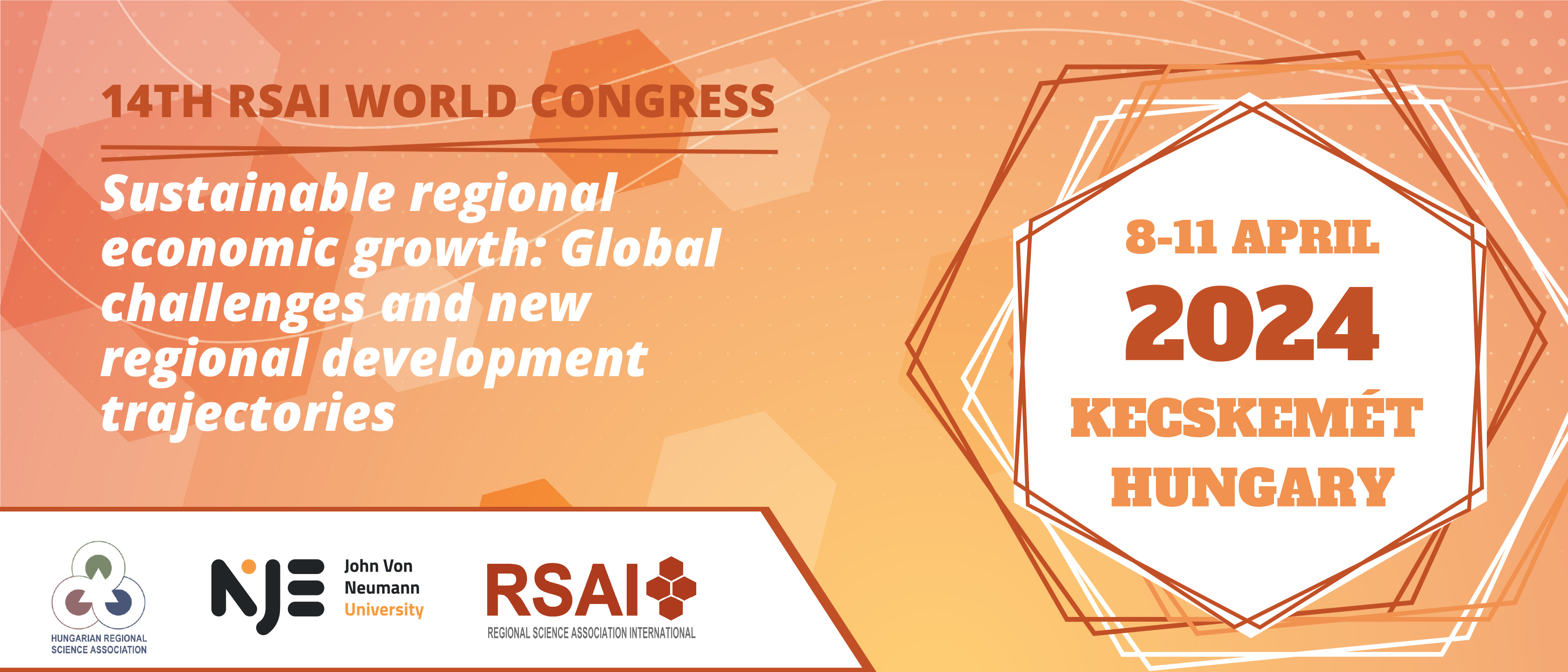
2024-03-07 14:54
For one week this April, Kecskemét and John von Neumann University will literally become the centre of the scientific world. The 14th World Congress of the Regional Science Association International (RSAI) in Kecskemét has so far attracted more than 390 speakers from 50 countries around the world. Most of the professional participants will arrive from China, but the representation is also strong from Italy, Romania, Japan, the United States of America, Spain, Brazil and Turkey.
It is a truly global event, with North and South America, Africa, the Arab world, Europe, Asia, India, Australia and even the Pacific Islands represented. In total, academics from 173 universities around the world will be visiting at John von Neumann University in April 2024 – from 5 of the world's TOP 10 universities and 11 of the TOP 20.
The outstanding scientific programme of the year in Kecskemét, the motto of the 14th RSAI World Congress, is "Sustainable regional economic growth: global challenges and new regional development paths".
Regional science is a modern spatial science that investigates the role that space plays in a wide variety of economic, social and power-governance processes. It is a basic premise of regional science that no two settlements or regions are alike and that spatial differences are therefore a most natural phenomenon. The economic and social phenomena observed in many regions give rise to territorial disparities. This can be seen in the decisions of households, businesses or even government institutions. Inequalities, the emergence and persistence of underdeveloped regions and the rise of wealthy regions and cities are often the result of long, sustained processes. These processes can be quantified, modelled and predicted. The elimination of backwardness and the reduction of glaring territorial disparities will not happen by itself, but must be achieved every day.
The processes that create territorial disparities are complex: economic, sociological, anthropological, demographic, socio-geographical, geopolitical and others. Therefore, these processes can be explained by the body of knowledge of many disciplines. In this respect, (regional science) can be compared to environmental science, which requires a wide range of natural and social science studies."
During the conference, the participants will get to know the sights of the city, experience our hospitality and take part in various cultural activities. They will spread the word about the city and the spirit of its people around the world.
By taking an approach that looks at the concrete practical impacts of economic, social science, political and technological change on the ground, the dynamically developing Kecskemét and its region can benefit greatly from the visit of the science experts in April. The international attention and the relationships that will be built will help the city, as a municipality with a unique model of economic cooperation and governance, to achieve social and scientific focus, economic partnerships - and even further investment.
Kecskemét, as a rapidly developing Hungarian city and region, can also benefit from hosting prestigious international events in general, but in terms of regional science, the topic has a lot of concrete potential, as regional science has a history of almost eight decades. The RSAI has over 4,000 expert members worldwide, with a network spanning the globe.
The conference is jointly organised by the Hungarian section of the RSAI and the ERSA (European Regional Science Association), the Hungarian Regional Science Association, hosted by the John von Neumann University, and will be co-chaired by the local organising committee, chaired by Dr. József Kárpáti and Dr. Balázs Forman, associate professors.
For more information on the conference, please visit our website at: https://regionalscience.org/2024RSAIcongress/
